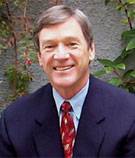December 2003

NOTES FROM THE ACADEMIC SENATE CHAIR
LAWRENCE PITTS
There are a number of active issues before the Senate just now. In November the Academic Council unanimously approved the establishment of a Special Committee on Scholarly Communications (SCSC) to begin an evaluation of the most effective and affordable ways to distribute scholarly work in the coming years. As many of you know, UC is currently in negotiations with Elsevier (and will be with other publishers in the future) for continued electronic access to their journals. Agreement may be reached soon. But even if an accord is reached for no price increases in the near term, UC will still be paying substantial sums to a company that recorded a 30% profit last year, and whose very product is the result of faculties’ scholarly work. We must find better ways to use widely available electronic media for dissemination of our work, both for periodicals and monographs. If any of you have a particular interest or expertise as editors, publishers etc., and would like to be contacted by SCSC, please let us know – we may seek your help on how best to move forward.
The Academic Council has adopted a Resolution proposed by the University Committee on Research Policy that endorses UC’s current practice not to accept grants that include requirements for pre-publication editorial rights, as is required by government-sponsored work defined as “Sensitive but Unclassified Technical Information (SUTI).” This is a new category applied to work since 9/11 that does not warrant a “classified” designation, but that the government deems sensitive in nature. The Academic Council strongly opposes SUTI because it could lead to restricting the publication of research results. This stance, however, may impact faculty members who do research in some of the SUTI areas, and their work may be affected by any action UC may choose to take on this policy. We have therefore asked President Dynes to continue the work begun by former President Atkinson and other university presidents to urge the federal government to return to its former “classified” — “unclassified” research designations, and not to impose the SUTI restrictions. Faculty who feel they may be affected are encouraged to contact their Vice Chancellors for Research or the Academic Senate for further discussions.
President Dynes has selected Robert Foley, retired four-star admiral with extensive industrial experience, as the new Vice President for Laboratory Management. His arrival is timely since President Bush has just signed a bill requiring that all three of UC’s lab management contracts (Los Alamos, Livermore and Berkeley) be put out for bid. While a decision has not been made about whether UC will bid for the contracts, substantial preparation must be made now so that we can bid if we choose to do so. The Academic Council Special Committee on the National Labs (ACSCONL) will initiate a series of programs to inform faculty on lab issues soon after the New Year. A faculty referendum is planned for early May.
Discussions continue about the budget crisis and its impact on the future of the University, including possible enrollment reductions. Of major concern is how to minimize the adverse effects of the budget cuts on the educational opportunities available to high school graduates. We are addressing this issue with our CSU and CCC faculty colleagues. In addition, the President’s new Eligibility and Admissions Study Group is currently reviewing UC’s eligibility and enrollment policies.
The Systemwide Academic Senate is committed to serving your interests, and I encourage you to contact us about your concerns.
Lawrence Pitts, Academic Senate Chair
